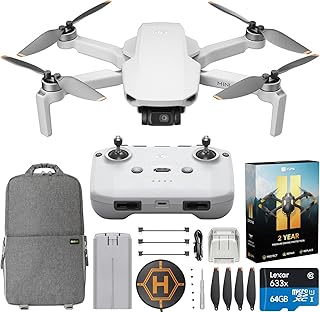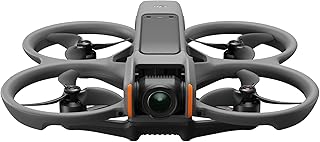Drone Photography with DJI Drones: A Beginners Guide
Taking stunning aerial photos with a DJI drone is a rewarding experience. This beginner's guide will equip you with the knowledge and skills to get started.
1. Safety First
* Understand and follow local regulations: Every country and region has its own rules regarding drone operation. Check your local laws on airspace restrictions, registration requirements, and flight limitations.
* Fly responsibly: Always maintain visual line of sight with your drone, avoid flying near airports or other restricted areas, and be aware of your surroundings.
* Practice safety procedures: Familiarize yourself with emergency landing protocols and learn how to safely recover your drone in case of signal loss.
2. Essential Equipment
* DJI Drone: Choose a drone that fits your budget and needs. Popular options include the DJI Mini 3 Pro, Air 2S, and Mavic 3.
* Extra Batteries: Drones have limited flight times, so having multiple batteries is crucial.
* SD Card: Choose a high-speed SD card with sufficient storage capacity for your photos and videos.
* Remote Controller: The DJI RC or RC Pro controllers are essential for controlling your drone.
* Protective Case: A good case will protect your drone and accessories during transport.
* Carrying Bag: A comfortable bag is essential for carrying your drone and equipment.
3. Pre-Flight Checklist
* Charge batteries: Ensure both your drone and remote controller batteries are fully charged.
* Check SD card: Make sure the SD card is inserted and has enough space.
* Inspect the drone: Check for any damage or loose parts.
* Calibrate compass: This ensures accurate flight readings.
* Plan your flight path: Familiarize yourself with the area and plan your flight route.
4. Taking Great Aerial Photos
* Composition: Apply the rules of composition, such as the rule of thirds, leading lines, and symmetry, to create visually appealing shots.
* Lighting: Find the best time of day for the lighting conditions you want. Golden hour and blue hour offer beautiful soft light.
* Exposure: Use the drone's camera settings to adjust exposure, ISO, and shutter speed to achieve the desired image brightness and sharpness.
* Focus: Make sure your subject is sharp by using autofocus or manually adjusting the focus.
* Capture different angles: Experiment with different angles and perspectives to find unique shots.
5. Mastering Drone Photography Techniques
* Slow Shutter Photography: Use slow shutter speeds to capture movement, such as water flowing or clouds moving.
* Panorama Shots: Stitch multiple photos together to create a panoramic view of your surroundings.
* Time-lapses: Create time-lapses by capturing a series of photos at regular intervals.
* Aerial Portraits: Capture people from an aerial perspective to create unique portraits.
6. Editing Your Photos
* Basic editing: Adjust brightness, contrast, and color in your photos to enhance their appeal.
* Advanced editing: Use tools like Photoshop or Lightroom to perform more complex editing tasks, such as removing unwanted objects or creating artistic effects.
7. Staying Inspired
* Follow drone photographers: Find inspiration from other drone photographers on social media and online platforms.
* Experiment: Try different techniques, settings, and locations to find your unique style.
* Have fun: Enjoy the process of learning and capturing stunning aerial imagery.
Remember, drone photography is a skill that takes time and practice. Be patient, persistent, and have fun exploring the world from a new perspective!


